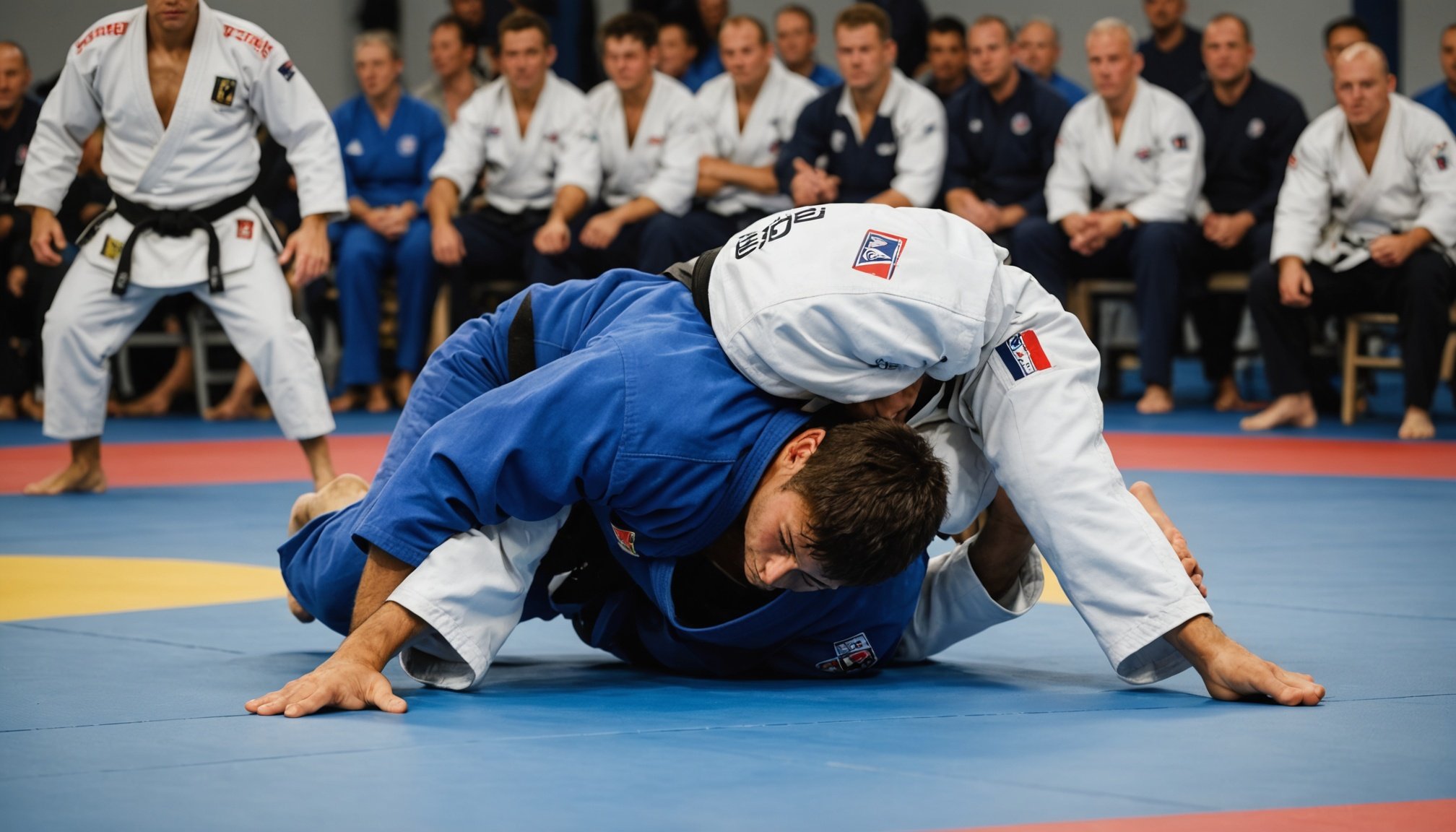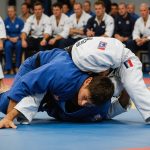Tactical Approaches for Match Preparation
Incorporating tactical approaches into match preparation strategies is crucial for judo athletes seeking success. By focusing on judo training and integrating tactical development into their routines, athletes can enhance their performance significantly.
One key strategy is understanding the opponent’s style. Analysing past competitions can help athletes anticipate moves and plan counter-strategies. Many judo champions, like Shohei Ono, credit thorough opponent analysis as a major factor in their victories.
Topic to read : Maximizing athletic excellence: enhancing joint mobility for combat sports competitors in the uk
Judo training should also emphasise the development of core techniques. Perfecting throws, holds, and locks creates a strong foundation, allowing competitors to execute complex tactics under pressure. Coach-led simulations can replicate the unpredictability of real matches, preparing athletes mentally and physically.
The benefits of tactical development are illustrated by athletes who have excelled through meticulous preparation. For instance, Kayla Harrison’s dominance in the 2016 Olympics highlights the importance of comprehensive match preparation strategies. By studying her opponents and refining her techniques, Harrison secured victory with precision.
Have you seen this : Mastering breakfall skills: key strategies for uk judo coaches to boost athlete performance
Integrating these strategies into judo training routines ensures competitors are not only physically ready but also tactically equipped. This balanced approach is what differentiates a good athlete from a great one, allowing them to adapt and thrive in high-stakes environments.
Training Regimens for UK Judo Athletes
Training regimens are crucial for judo athletes to excel in competitive environments. A focused approach combining physical conditioning and skill development is essential to enhance performance.
Physical Conditioning Techniques
Physical conditioning forms the backbone of a judo athlete’s training regimen, contributing significantly to strength and endurance. Key exercises such as circuit training, including push-ups, squats, and burpees, are crucial. These exercises improve agility and flexibility. Incorporating plyometrics helps enhance explosiveness. A sample weekly training schedule for judo athletes might include:
- Monday: Cardiovascular exercises and strength training
- Wednesday: High-intensity interval training (HIIT)
- Friday: Flexibility and recovery exercises
Skill Development Drills
Skill development requires athletes to focus on fundamental judo techniques, progressing from basic to advanced drills. Techniques like the O-goshi and Seoi-nage are vital. Starting with these and gradually advancing to complex throws ensures skill mastery. Incorporating regular sparring sessions allows practical application of skills learned, providing real-world scenarios for athletes to test and refine their techniques.
Periodization in Training
Periodization is structuring training into cycles to peak at competition times. Athletes benefit from varying training intensity and focus in phases, such as endurance, strength, and technique improvement. Monitoring training loads and making necessary adjustments maximizes performance without risking injury.
Mental Conditioning Strategies
Mental conditioning is an integral aspect of achieving peak performance in judo. Athletes must build mental resilience and enhance concentration through effective sports psychology techniques.
One key method is mastering focus and concentration. This is crucial for judo practitioners who require sharp attention during matches. Techniques such as mindfulness practices and controlled breathing help athletes maintain calmness, enabling quicker and more accurate responses.
Visualization is another essential component in judo. Athletes imaginatively rehearse their moves, which aids in mentally preparing for various scenarios during a match. This kind of mental rehearsal not only enhances mental preparation but helps solidify strategies, refining techniques even before physically performing them.
Sports psychologists play a pivotal role in this process by guiding athletes in establishing a robust mental framework. They assist in developing personalized mental conditioning programmes, fostering confidence, and providing tools to cope with pressure. These professionals enhance an athlete’s mental resilience, ensuring they can perform optimally under stress.
To sum up, integrating these mental conditioning strategies empowers judo athletes to harness their full potential, making their mental prowess as formidable as their physical skills.
Practical Examples and Case Studies
Exploring the world of judo through practical examples offers deep insights into both the physical and mental preparation of an athlete.
Profiles of Successful UK Judo Athletes
When looking at the profiles of renowned UK judo athletes, their preparation tactics and training methodologies emerge as central themes. These athletes often engage in rigorous routines that highlight both mental resilience and physical conditioning. For instance, many follow structured schedules that incorporate strength training and sparring sessions to hone their skills for competitions. Their journey from novice to elite judo practitioners highlights lessons about dedication and adaptability.
Expert Insights from Coaches
Speaking with experienced judo coaches provides valuable insights into tactical preparation. These experts emphasize the importance of tailored coaching techniques that adapt to each athlete’s unique needs, stressing that continuous learning and adaptability are essential for success. Coaches recommend aspiring athletes maintain a continuous learning mindset, always adapting to new strategies and techniques to stay competitive.
Visual Aids for Technique Demonstration
Visual aids, such as diagrams and video analyses, are invaluable tools in demonstrating key judo techniques. They offer learners the ability to see and understand complex strategies in action. By utilizing these aids, athletes can enhance their learning outcomes and improve their overall performance in match preparations.











